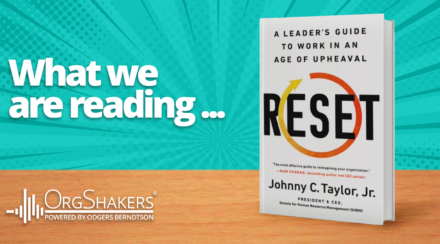Menu

Avoiding the Slippery Slope of Wellbeing Washing in January
Ah, January.
After a month packed with festive traditions, colorful lights, and more food than many of us would care to admit, it is quite natural to find yourself in a bit of a slump as the new year kicks off.
This feeling is known more commonly as the ‘January Blues’ (or the ‘Winter Woes’ if you love a little bit of alliteration). This is a common phenomenon where individuals experience a sense of depression, lethargy, or just a general decline in mood during the first month of the year. If we think of December as a rush of adrenaline, January is that feeling when the adrenaline wears off and reality comes creeping back in.
Whilst this sense of ‘feeling down’ can usually fade after getting back into the groove of things, for some it can linger longer. For example, financial stresses that may have been exacerbated by the holiday period are not going to vanish when we tip over into February. Equally, those that suffer from seasonal affective disorder (SAD) tend to struggle during these winter months.
So, when looking to re-engage employees in January and support their wellbeing during this post-festive slump, it is important for employers to view this month as a springboard for the momentum of their wellbeing strategy for the entire year, and not just fixate on wellbeing in January and then let this momentum wane as the year goes on.
And, let’s be honest, we can all be a bit guilty of this at this time of year! Some of us will have signed up for that new gym membership and started taking part in Veganuary only to discover that these resolutions quickly fizzle out. Suddenly the gym membership is just another card cluttering your wallet – and no amount of carrots and hummus can stop you daydreaming about cheese!
But in the same way persevering with the gym will improve your health, companies that maintain their wellbeing efforts throughout the whole year will find themselves with the strongest and most productive workforce, and will avoid falling into the trap of ‘wellbeing washing’.
Wellbeing washing is essentially when companies express their passion towards mental and physical health but don’t actually demonstrate this through their practices or actions. One study found that more than a third (35%) of businesses are perceived by their employees to be wellbeing washing.
The key to avoiding this slippery slope is consistency and clarity. Wellbeing is an issue that has moved up the corporate agenda in recent years – especially post-pandemic – and so it is important for employers to be consistent in their efforts to support the wellbeing needs of their workforce all year round.
And while having happy, healthy workers is already going to be good for brain health, innovative thinking, and boosting productivity, a study by Mind also discovered that 60% of workers think that if their employer made steps to support their wellbeing at work, it would increase their motivation and the likelihood of them recommending their company as a great place to work.
The best thing employers can do is be aware of those looming January blues and make it clear to their staff what support is on offer (either internally or externally) and how these services will help them with their specific needs. This keeps organizations true to their promises of bringing wellbeing to the forefront and creates a culture that promotes the mental and physical health of employees – all of which promotes a healthy business for the year to come.
If you would like to discuss how we can assist your business with its wellbeing strategies, please get in touch with us.



